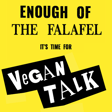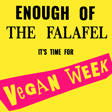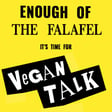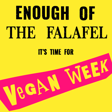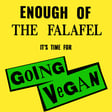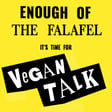
136- Is rewilding vegan?
Rewilding is arguably the hot new topic in vegan circles...but is it always vegan, or what is best of animals? Kate, Julie & Ant dip their toes into this one, making reference to the following sources:
https://rewildingeurope.com/what-is-rewilding/
https://knepp.co.uk/
https://iucn.org/resources/issues-brief/benefits-and-risks-rewilding#:~:text=Poorly%20managed%20rewilding%2C%20however%2C%20carries,revised%2C%20with%20reduced%20herbivore%20numbers.&text=Without%20proper%20consultation%20rewilding%20may,causing%20projects%20to%20be%20abandoned
https://whoownsengland.org/
https://www.naturebooks.co.uk/product/the-lie-of-the-land-who-really-cares-for-the-countryside
As ever, we love hearing your views on the topics under discussion (or anything else!) so do drop us your thoughts via enoughofthefalafel@gmail.com
*************
Enough of the Falafel is a community of people who love keeping on top of the latest news in the world of veganism & animal rights. With the Vegan Talk podcast, we aim to develop listeners' (& our own) thoughts around key issues affecting veganism & the animal rights movement; giving our opinions, whilst staying balanced; remaining true to our vegan ethics, whilst constantly seeking to grow & develop.
Each week we home in on one topic in particular and pick it apart in more detail. If you have a suggestion for a future show, do get in touch via enoughofthefalafel@gmail.com.
*******************
Thanks everyone for listening; give us a rating and drop us a message to say "hi"; it'll make our day!
Kate, Julie & Anthony
